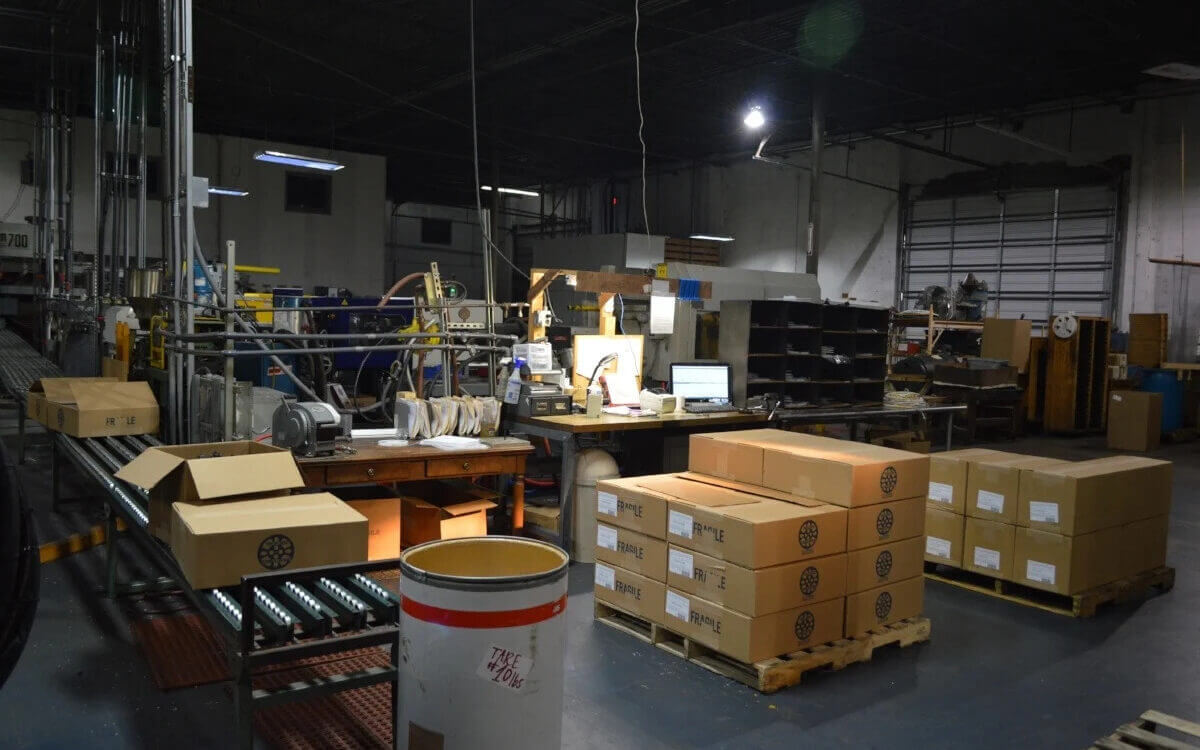September 28, 2018•
Plastic Injection Molding•
Bill Hall
Did you know there are more than 80,000 different materials to choose from for molded plastic parts?
No doubt the sheer volume of materials available in today’s market can be overwhelming. Especially when the pressure is on to select the perfect combination of polymers and additives to achieve a high quality and defect-free molded plastic part.
Here is a breakdown of some of the most popular plastic materials on the market and the features you need to consider when selecting the right material for injection molded parts.
Polypropylene (PP)
Polypropylene is a soft, flexible, and lightweight polymer. Because it does not degrade when exposed to chemicals, water, or acid, it is commonly used in cleaning equipment, car batteries, and packaging for solutions.
Acrylonitrile Butadiene Styrene (ABS)
Acrylonitrile butadiene styrene has a wide application across consumer and automotive industries. Known for its strength and toughness, ABS is used to build motorcycle helmets, phones, and computers.
It’s also flexible, lightweight, and easily molded. It’s relatively less costly than other polymers.
Polyethylene
Originally developed in the 1950s, polyethylene remains steadfastly one of the most popular materials for molded plastic parts. There is high-density polyethylene (HDPE) and low-density polyethylene (LDPE).
Polyethylene is known for being moisture-resistant, so it is used in many waterproofing and waterproofing applications. One common example of its use are plastic grocery bags.
This polymer is both soft, lightweight, and flexible. It is also one of the most affordable options.
Polyamide (Nylon)
Nylon is another versatile plastic used in a number of industries, including medical, automobile, industrial, and consumer. It is known for being durable against wear and tear and being stable under exposure to high temperatures or chemicals.
It is a stiff, heavier weight polymer. It is also more expensive than polymers like polyethylene or ABS.
Polycarbonate (PC)
Polycarbonate is a hard, stiff polymer that is best known for its transparency and resistance. It is commonly used to build parts for windows, protective gear, and eyewear.
While PC is shatter-resistant, it is not naturally scratch resistant. Scratch resistant coatings or treatments can be used after the injection molding process is completed.
PC/ABS Blend
This blend combines the best of both polymers. It is strong, stiff, and resistant to heat. It also has low shrinkage, which is a common source of defects. This means PC/ABS simplifies the molding and manufacturing process for a more affordable source material.
Polystyrene (PS)
Polystyrene, a very affordable polymer, is often used for single-use applications, like disposable products, food packaging, and petri dishes. However, PS degrades slowly over time, particularly in its foamed form, and is a source of pollution.
Are you ready to take the next step?
Our team is ready to provide you the expertise you need to know to pick the material that makes the most business sense. We will work with you to identify the needs of your product and match it to the right combination of polymers and additives.
Last modified: January 9, 2024
